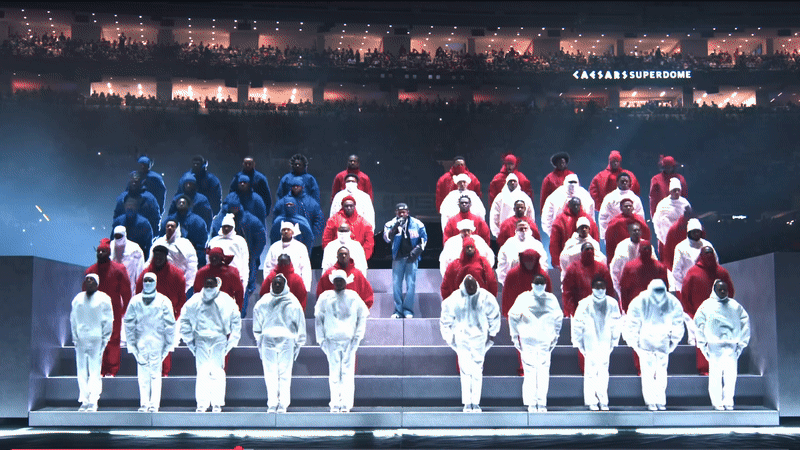Program Notes is a new Live Cultures segment that reflects on theatre beyond the context of the stage. In this essay, I tease out some ambiguous feelings prompted by Kyle Abraham’s Park Avenue Armory Commission, Dear Lord Make Me Beautiful, performed last December.
I was 11 or 12 when I learned that a spotlight can drown you. All of three feet above the ground, flanked by the stage wings, the upstage wall, the black anonymity of the “fourth wall”, and a blaring rig of lights overhead, I am encased in a tank of hyperbole. It was a small stage in a greying mid-century school hall, but it could have been the Royal Opera House. In the theatre, I was taught, we never scale down to our surroundings. Be big. Make everything bigger. Be larger than life. Be seen. Be the spectacle they came to see. To be pedestrian is to be invisible.
From the other side of that fourth wall, beholding the searing technicolor drama, you learn to see only in high contrast, hear in stereo and feel deep and loud, often overlooking the soft, fuzzier, quiet feelings. Quiet feelings aren’t immediately legible. They’re curious, mercurial sensations that seem to evade the grasp of an adjective. Quiet feelings might not even manifest externally and yet when they find us, they seem to cradle the soul like a well worn shoe that still holds the particular contours of your toes.
Feet tapping in anticipation, I sat in the Park Avenue Armory, awaiting Dear Lord Make Me Beautiful. The immensity of the Armory’s drill hall added similarly scaled expectations to Kyle Abraham’s (capital A, C) Armory Commission. An overflowing seamless backdrop camouflaged in abstract projections, spilled out in a vast circular pool to form the stage. A live sextet warmed their instruments atop a lofty black pedestal. This was going to be ‘big’. I was primed for Kyle Abraham to pull something powerful out of the hat; I was ready for the soulful, bassy polyphony of RnB, the unapologetic characters, the spectacle of it all.
Be big. Make everything bigger. Be larger than life. Be seen. Be the spectacle they came to see. To be pedestrian is to be invisible.
At the end of the performance, I remember my initial reaction being an oddly flavored strain of underwhelm. On reflection, it wasn’t that the performance itself was underwhelming but rather that I was overwhelmed—and chronically so. From brain-rotting slurry spewing from the internet firehose, to The HolidaysTM, and the palaver that is “closing out Q4”, the world felt like an oversaturated circus socially, creatively, politically, professionally. Confronting the (unexpectedly) quiet internality of Dear Lord Make Me Beautiful was a shock to the system that I needed time to compute.
Dear Lord Make Me Beautiful contemplates time and transition, through Abraham’s very intimate and immediate reckoning with the life cycle, the weathering and eventual wintering of the body. Abraham, who is 47 (though you’d never guess), enters assuredly striding around the perimeter of the circular stage. His footsteps progressively grow heavier, his spine wilts forward. A costume reminiscent of moth wings veils his torso, also slightly worn and weathered. In contrast to the vivid and kaleidoscopic backdrop, the costume is much more muted, more earthy—more pedestrian. He is joined by a large cast of dancers, each dancer standing somewhere along the spectrum from earnest youthfulness and sage maturity; perhaps representations of Abraham himself over time. The performance flowed through seasons: intimate duets to larger groups moving in unison and then in counterpoint. The backdrop also followed, melting from a vivid ‘summer’ to a stark, stoic ‘winter’. The piece moved with constancy, never stalling but conversely never reaching a climax. In this steadiness, Abraham applies a salve to the ultra-performative, chaos of the world: honesty.
The world felt like an oversaturated circus creatively, politically, professionally, interpersonally. Confronting the (unexpectedly) quiet internality of Dear Lord Make Me Beautiful was a shock to the system that I needed time to compute.
Too often, we conflate the performance and drama of life’s ‘happenings’ with life itself. The steady, reliable passage of time. Heartbeat and breath. Wrinkles that steadfastly etch the lines of our laughter, frowns, and winces into the skin. To dress these truths up would be to stretch them into a spectacular fable rather than plain, simple life. Life is not boring. On the contrary, it’s a phenomenon. Just a quiet phenomenon.
With this honesty, Kyle Abraham challenged me to see and feel more honestly; to return to softened senses such that I might recover the quiet feelings within myself. With this honesty, costumes and facades are shed, revealing the bare faced truth of just being.
And so, one foot in front of the other, we walk, run and falter as pedestrians–not performers. Our small, quiet footprints, though probably unseen, are not invisible; they’re the honest record of life.
MORE PROGRAM NOTES
Thank you for reading. If you enjoyed this essay and would like to read more program notes, you may also enjoy reading:
Turn the TV Off.
There were 113 million eyeballs watchfully awaiting Kendrick Lamar’s half-time show. Aware of this immense visibility, Lamar certainly gave us something to look at: not a halftime spectacle, but rather an uncanny reflection of ourselves in the midst of the “Great American Game.”






We have become so conditioned to feel out loud that subtlety and quietness of feelings and mulling over things have been pushed out! How was it? GREAT! , Fantastic, Fabulous, even Awful!…timely essay , let’s be a little more observant of our feelings and spontaneous expression of these in the coming weeks.!!